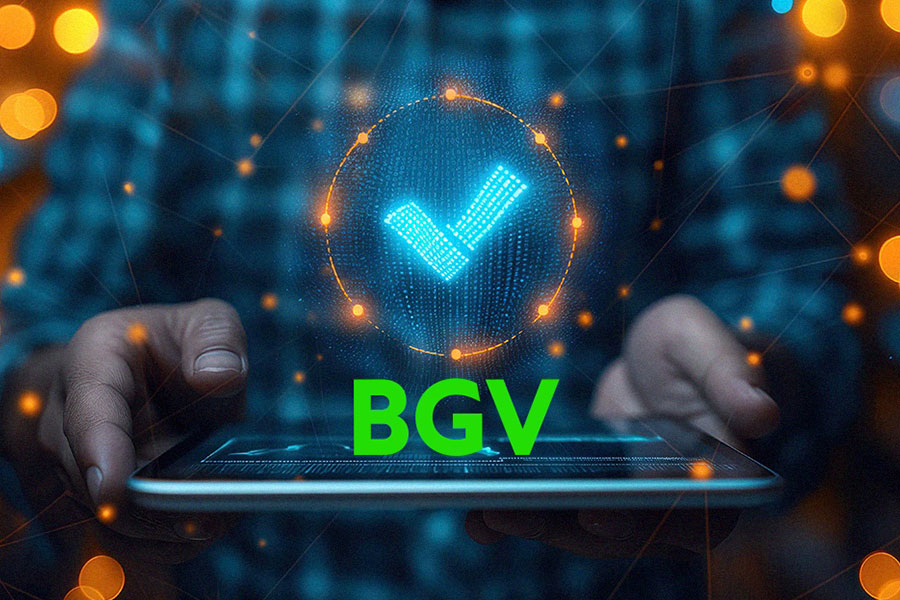The Crucial Role of Background Verification
In today’s dynamic work environment, ensuring the safety, security, and integrity of the workplace is more critical than ever. One of the most effective ways to achieve this is through comprehensive background verification of employees. This process is not just about ticking a compliance box; it is about protecting your organization from various risks and ensuring a trustworthy workforce. Whether it’s white-collar, grey-collar, or blue-collar employees, background verification plays a pivotal role in maintaining a secure and reputable workplace.
Why is Background Verification Important?
-
Safety and Security:
Perhaps the most obvious reason for conducting background checks is to ensure the safety of employees, customers, and company assets. For instance, in roles involving direct interactions with customers, or requiring access to sensitive information or physical assets, a thorough background check can help identify individuals with a history of unethical behaviour, theft, violence, or drug abuse. -
Fraud and Impersonation:
Background checks can help prevent fraudulent activities and identity theft. By verifying employment history, educational qualifications, and criminal records, businesses can reduce the risk of hiring individuals with false identities or criminal pasts. -
Reputation Risk:
An organization’s reputation is one of its most valuable assets. Hiring an employee with a questionable background can damage a company’s reputation. A negative incident involving an employee can lead to significant financial loss, legal issues, and loss of customer trust. -
Falsified Records:
Falsified educational or employment records are common issues that employers face. Candidates may exaggerate or fabricate their qualifications and experiences to secure a job. Background checks help uncover discrepancies and ensure that candidates are truthful about their qualifications and experience. -
Potential Criminal Antecedents:
While not everyone with a criminal record is a threat, certain offenses can be relevant to specific job roles. It is crucial to know if a potential hire has a criminal record, especially if it pertains to offenses that could affect the safety and security of the workplace. A background check can help identify potential red flags and make informed hiring decisions.
Background Verification Across Industries
The importance of background checks varies across different industries and job roles.
-
-
White-collar employees:
Often in roles requiring high levels of trust and confidentiality, such as finance, healthcare, and law, background checks are essential to protect sensitive information and maintain professional standards. A criminal record or a history of financial misconduct can pose significant risks. -
Grey-collar employees:
Roles in sales, marketing, and customer service may not require the same level of scrutiny as white-collar positions, but background checks can still be valuable. A history of dishonesty or aggressive behavior can impact customer relationships and damage a company’s reputation.
-
-
Blue-collar employees:
While often perceived as less critical, background checks for blue-collar workers are equally important. Positions that involve handling cash, equipment, or interacting with customers require trustworthy individuals. A criminal record, especially for theft or violence, can be a major concern.
The Benefits of Background Verification
Beyond mitigating risks, background checks offer several benefits:
- Improved hiring decisions: By verifying information and identifying red flags, businesses can make more informed hiring decisions.
- Enhanced employee morale: A safe and secure workplace contributes to a positive work environment and boosts employee morale.
- Reduced attrition: Hiring the right candidates from the outset can lead to higher employee retention rates.
- Legal protection: Thorough background checks can help protect businesses from lawsuits related to negligent hiring.
- Long-Term Savings: Although background checks may seem like an added expense, they can save organizations significant costs in the long run. The cost of dealing with fraudulent activities, theft, or workplace violence far outweighs the investment in thorough background verification.
By investing in a comprehensive background check process, companies can protect their reputation, assets, and employees while making informed hiring decisions. It is essential to choose a reliable background check provider that complies with relevant laws and regulations to ensure accuracy and fairness.

